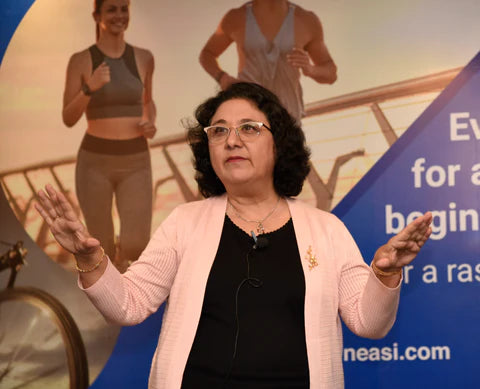There are several reasons why the popularity of plant-based eating and a greener lifestyle is on the rise. As people become more aware about their responsibility toward the environment and as animal rights activists highlight the horrors of the meat industry, there has also been a rising demand for cruelty-free food alternatives. But when it comes to athletes, things are not that simple.
Athletes need to be extra mindful of what they put into their bodies. They are constantly working out or on the run, building muscle, speed, and stamina. Therefore, there cannot be any compromise with the quality of food and the nutrients they consume. The star nutrients being protein and vitamin B12. The latter, you cannot get from plant-based sources. As we celebrate the Vegan Month, let's talk about that all that you need to know:
What is a plant-based diet?
Essentially, a plant-based or vegan diet refers to consuming food items that are solely derived from plants. That means, no dairy, no meat, no seafood or fish and no honey or any other foods that are derived from animals in any way.
As stated earlier, it also means you need to be extra cautious, as an athlete, if you choose to go plant-based.
Ideas for a wholesome plant-based meal plan for athletes

Let’s talk about the top 3 concerns athletes may have regarding a plant-based diet.
1. Not getting enough protein
It is not entirely true that you won’t get enough protein when eating a plant-based diet. However, you may have to work a bit harder to ensure the right food combinations that give you the right amounts of protein.
Major sources of plant-based protein are:
- Tofu
- Lentils
- Peas
- Chickpeas
- Sprouted mung beans
- Beans
- Nuts, nut butter, and nut milk
- Quinoa
- Chia seeds
The problem with plant-based diets is that they will not be able to provide you with the right amounts of vitamin D, calcium, and most of all, vitamin B12. Athletes need to understand these risks and talk about them with their doctors before they choose to go entirely plant-based. The solution is often in the form of nutritional supplements that can prevent any kind of deficiency or disease. Additionally, you could also consume nut milks that are fortified with calcium.
Natural plant-based sources of calcium are:
- Spinach
- Broccoli
- Legumes
- Oranges
- Bell peppers

3. Not getting enough variety
This is a myth. Plant-based meals can be as bland or as exciting as you want. There are plenty of recipes you can try and experiments you can play with until you are satisfied with the type of variety that begins to show in your kitchen or on the table top!
Here are a few examples that will ensure a good splash of colors, diversity in taste, and a range of options to choose from.
Plant-based breakfast options for athletes
- A colourful smoothie bowl topped up with a variety of berries, nuts, seeds, nut butters!
- Quinoa and red bean salad
- Plant-based savoury pancakes made of chickpea flour and vegetables
- Spicy tofu sandwiches with plant-based mayo
- Mock-meat sausages and whole-grain breads

Plant-based lunch options for athletes
- Vegetable curries with black/red/brown rice
- A variety of vegan noodle dishes and soups
- Salads with tempeh or tofu
- Black bean, lentil, and vegetable wraps
- A variety of sandwiches
Plant-based dinner options for athletes
You should also ensure a good intake of healthy fluids like coconut water, lime juice, vegetable smoothies and so on, throughout the day. And as always, snacking is important to keep from binging on empty calories. So, nuts, nut balls, dairy-free dark chocolate, whole-grain crackers and toasts are a few vegan snack options you could try.





